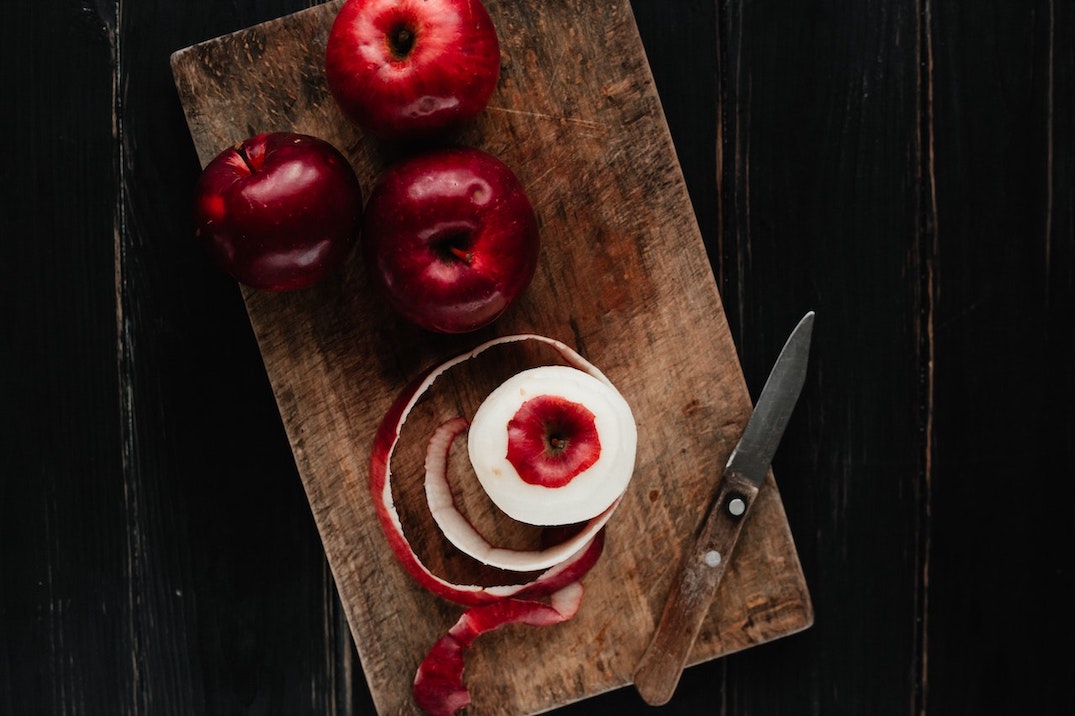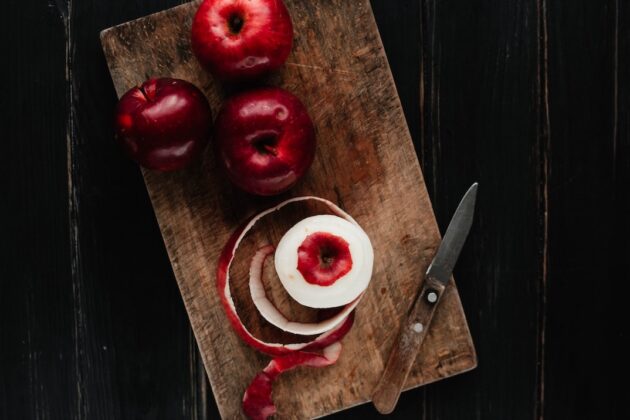Best Foods for Gut Health (& Which to Avoid)
The gut microbiome consists of different types of bacteria that live inside your intestines. There are species of bacteria that can be beneficial to your health and others that can be harmful. Having a healthy balance of bacteria in your gut reduces digestive issues and is linked with fewer health problems.
An unhealthy gut can lead to digestive issues such as bloating, constipation, diarrhea, and even irritable bowel syndrome. Studies have also investigated a possible link between the gut microbiome and certain health conditions like autoimmune diseases, obesity, cardiovascular disease, and more.
If you are struggling with gut health, you may be wondering what foods can help. Foods with probiotics, the good bacteria, are well-known for their benefits on gut health. Prebiotics, which are a type of fiber found in many plant-based foods, promote the growth of good bacteria.
Along with consuming probiotics, prebiotics, and other foods that promote gut health, it is important to limit foods that can be harmful to your digestive system. You may find it helpful to eliminate highly processed foods and fried foods for a healthier gut.
This guide will go over the best foods for gut health, which to avoid, and other tips for promoting a healthy gut.
Best foods for gut health
Filling your diet with the right types of foods can contribute to a healthy gut. Most foods for gut health are rich in fiber, probiotics, and antioxidants to reduce inflammation and promote the growth of good bacteria.
High-fiber foods
- Fruit. Whole fruit is rich in fiber and can help improve digestion. High-fiber fruits include berries, pears, oranges, and apples with the skin on.
- Whole grain products. Many whole grain products such as whole wheat bread and whole wheat pasta contain insoluble fiber which helps speed up the movement of food through your digestive system to prevent constipation. Choosing whole grain products over refined grains is a simple way to increase your daily fiber intake.
- Vegetables. Vegetables also contain different types of fiber and a variety of nutrients to benefit your gut health and overall health. Vegetables that are high in fiber include artichokes, Brussels sprouts, carrots, beets, squash, and broccoli.
- Legumes. Beans, peas, and lentils are all rich in soluble fiber, which can slow down digestion to improve nutrient absorption. Just adding one serving of legumes to your daily intake can help you reach your fiber goals and regulate bowel movements.

Improve your gut health with support from a Registered Dietitian
90% of Zaya Care patients pay $0 for dietitian visits
Prebiotics
- Whole grains. Oats, quinoa, barley, and brown rice all contain prebiotics, which help promote the growth of beneficial bacteria. Whole grains are also rich in other types of fiber that help improve digestion.
- Jerusalem artichokes. Jerusalem artichokes contain a high amount of inulin, which is a type of prebiotic that supports digestive health. Research has suggested that consuming a diet with inulin-rich vegetables leads to a healthier gut microbiota.
- Onions and garlic. Onions and garlic are prebiotic-rich foods that can help keep your gut healthy. Both foods also contain antioxidants which can help decrease inflammation.
- Bananas. Bananas are rich in fiber and easy for your body to digest. Green bananas (not ripe) are also high in resistant starch, which has been found to help increase the good bacteria in your gut.
- Apples. Pectin is a type of soluble fiber that is found in apples. Pectins have been shown to reduce intestinal inflammation and help regulate the composition of gut bacteria.
- Asparagus. This popular vegetable is rich in prebiotics, particularly inulin. Inulin consumption leads to an increase in good bacteria and a decrease in harmful bacteria in the gut.
- Leeks. Leeks are a vegetable that belongs to the same family as onions, garlic, shallots, and scallions. Leeks contain a variety of nutrients to support immune health. They are also packed with prebiotic fiber and antioxidants that can fight inflammation.
>> Read more: How to heal your gut naturally
Probiotics
- Yogurt. Yogurt contains high amounts of beneficial bacteria, also known as probiotics. One study suggested that regular yogurt consumption can lead to changes in the bacteria composition of the gut. Greek yogurt is also rich in probiotics, and it typically contains more protein and less sugar than regular yogurt.
- Kimchi. Kimchi is a traditional Korean dish. It is made by salting and fermenting vegetables like cabbage and radishes. This fermentation process increases the probiotic content, making this food beneficial for gut health.
- Tempeh. Tempeh is made from cooked and fermented soybeans. It is a high-protein, plant-based food that is often consumed by those on a vegan or vegetarian diet.
- Kefir. This fermented milk drink has a similar consistency to thin yogurt. In addition to probiotics, it is also rich in protein, calcium, and other nutrients to support overall health.
- Kombucha. A popular beverage in the health industry, kombucha is a fermented drink made from tea. While kombucha does contain beneficial bacteria, it is important to look out for high amounts of sugar that are often added to kombucha-based beverages.
>> Read more: Best supplements for gut health
Symbiotic foods
- Whole grain bowl with kimchi. The probiotics in kimchi and the prebiotics in whole grains work together to inhibit the growth of harmful bacteria and enhance the growth of good bacteria.
- Yogurt and banana. Adding a green banana to yogurt makes the perfect combination of both prebiotics and probiotics in one meal.
- Miso soup with leeks. The mixture of a probiotic-rich soup with vegetables that are packed with prebiotics can help support a healthy gut microbiome.
Anti-inflammatory foods
- Tomatoes. Tomatoes contain a powerful antioxidant called lycopene. Consuming foods with lycopene has been shown to decrease inflammation in the body. Lycopene has even been shown to have anti-inflammatory effects on human colorectal cancer cells.
- Olive oil. Olive oil is a healthy fat source that has been proven to provide many health benefits. Some studies have suggested that olive oil can promote the growth of good bacteria in your gut, supporting a healthy gut microbiome.
- Cherries. Tart cherries contain powerful anti-inflammatory properties, along with fiber, to reduce inflammation in the body and promote gut health.
- Leafy greens. Leafy greens, such as spinach and kale, contain a variety of vitamins like vitamin C, an antioxidant that supports immunity and protects your body’s cells from damage. Leafy greens also contain fiber to promote digestive health.
- Berries. Berries contain antioxidants called polyphenols. Evidence from clinical studies suggests that polyphenols can reduce intestinal inflammation and contribute to the growth of good bacteria in your gut.
- Green tea. The antioxidants in green tea provide a variety of health benefits. Drinking green tea regularly has been proven to correct bacterial imbalances in the gut.
Omega-3 fatty acids
- Walnuts. Regular walnut consumption has been proven to be beneficial for overall health. Not only do walnuts decrease inflammation because of the omega-3 content, but studies have also shown that eating walnuts regularly can help increase beneficial bacteria in the gut.
- Fatty fish. Salmon, herring, and mackerel are not only high in omega-3 fatty acids, but they are also a good source of high-quality protein.
- Flaxseed. Flaxseed contains both omega-3 fatty acids and fiber to promote digestive health.
- Chia seeds. Like flaxseed, chia seeds are also a great source of minerals like iron, calcium, and magnesium.
Hydrating foods
- Water-rich vegetables. Cucumbers, lettuce, and celery are all made up of mostly water. Consuming these vegetables can contribute to your daily water intake and keep you hydrated, which helps food move through your digestive system.
- Melons. Cantaloupe, watermelon, and honeydew melon not only contain high amounts of water to help you stay hydrated, they also contain a variety of key vitamins, minerals, and fiber.
- Broth. Broth and broth-based soups contain a lot of fluid and electrolytes to help you stay hydrated.
>> Find a Gut Health Nutritionist That Accepts Your Insurance
It is important to note that not everyone tolerates the same foods. The best foods for you to eat depend on your personal situation, preferences, and what foods you are able to tolerate. Understanding what works best for you is the most important part of managing your gut health.
For most people, sticking to more whole foods and less processed foods is helpful. However, not every food listed above is suitable for every person. That is why it is important to consult your doctor or nutritionist before making any big dietary changes—to ensure that you are making the right changes.
If you are dealing with digestive health issues like heartburn, acid reflux, Crohn’s, or ulcerative colitis, check out these additional guides:
- GERD Diet: Foods to Eat & Avoid for Acid Reflux & Heartburn
- Crohn’s Disease Diet Plan
- Ulcerative Colitis Diet Plan
- Gastritis Meal Plan + Best & Worst Foods to Eat
Worst foods for gut health
The bacteria in your gut play a role in how you digest food and absorb nutrients. An imbalance of good and bad bacteria can negatively impact your gut and overall health. Certain foods, like those listed below, can cause damage to your gut and eventually, lead to other health issues.
- Foods with a lot of refined sugar. Excessive sugar consumption may negatively impact the gut microbiome. For the best gut health, try to limit candy, pastries, sugary breakfast cereals, and sugar-sweetened beverages.
- Artificial sweeteners. Artificial sweeteners are sugar substitutes that make food products taste sweet without added calories. Artificial sweeteners are often hard for the body to absorb, which can lead to digestive upset. Research has shown a potential link between artificial sweetener consumption and an altered gut microbiota. To avoid uncomfortable digestive issues, avoid foods made with artificial sweeteners like protein bars, diet beverages, and sugar-free products.
- Highly processed foods. High consumption of processed foods can lead to inflammation and changes in the gut microbiota. To avoid inflammation and intestinal issues, choose whole foods over highly processed foods like lunch meats, frozen dinners, hot dogs, and sweetened breakfast cereals. Instead, focus on consuming mostly whole foods like fresh produce, lean meat, fish, and nuts.
- Alcohol. High alcohol consumption can cause an overgrowth of harmful bacteria in the intestines. This may lead to intestinal inflammation and other gut issues. It is best to limit alcohol consumption for gut health.
- Red meat. It is well known that a diet that contains a lot of red meat is associated with certain health conditions like heart disease. A recent study found that red meat consumption increases trimethylamine N-oxide (TMAO) levels. TMAO is a byproduct of gut bacteria. Researchers have linked higher levels of TMAO with heart disease.
- Refined grains. Examples of refined grains include white flour, white rice, and white bread. During the refining process, grains are stripped of valuable nutrients including fiber. Instead of refined grains, choose whole-grain bread, whole-grain pasta, and brown rice to ensure you are getting enough nutrients and fiber to support healthy digestion.
- Foods with a lot of saturated fat. A diet high in saturated fat is closely related to obesity, metabolic syndrome, and gastrointestinal diseases. Consuming fewer foods with saturated fat like fatty meats, butter, and full-fat dairy products may help promote a healthy gut microbiota.
- Fried foods. Consuming fried foods regularly can induce inflammation and promote the growth of harmful bacteria in the gut. In addition, regular fried food consumption is associated with a variety of health conditions such as heart disease, obesity, and type 2 diabetes. To improve your gut health and overall health, opt for foods that are baked, steamed, seared, and broiled.

Improve your gut health with support from a Registered Dietitian
90% of Zaya Care patients pay $0 for dietitian visits
Sample meal plan that can help with gut health
Here is a sample 1,700-calorie meal plan primarily containing foods that can help with gut health while avoiding those that can make it worse. It’s important to work with your nutritionist or other healthcare provider to make sure you’re eating correctly for your personal situation.
Breakfast: Yogurt Parfait (350 Calories)
- Greek Yogurt (probiotics): 1 cup
- Fresh Berries (anti-inflammatory): 1/2 cup
- Chia Seeds (omega-3): 1 tablespoon
- Oats (prebiotics): 1/4 cup
- Honey (natural sweetener): 1 teaspoon
Morning Snack: Veggie Sticks and Hummus (150 Calories)
- Carrot and Cucumber Sticks (prebiotics): 1 cup
- Hummus (anti-inflammatory): 2 tablespoons
Lunch: Grilled Salmon Salad (450 Calories)
- Grilled Salmon (omega-3): 4 oz
- Mixed Greens, Tomatoes, Avocado (prebiotics & anti-inflammatory): 2 cups
- Olive Oil and Lemon Dressing (anti-inflammatory): 1 tablespoon
- Whole Grain Bread (prebiotics): 1 slice
Afternoon Snack: Nut Mix (200 Calories)
- Almonds, Walnuts, and Brazil Nuts (omega-3 & anti-inflammatory): 1 oz
Dinner: Lentil Soup with Steamed Asparagus (550 Calories)
- Lentil Soup (prebiotics): 2 cups
- Steamed Asparagus (prebiotics): 1 cup
- Brown Rice (prebiotics): 1/2 cup
- Sauerkraut (probiotics): 1/4 cup
Drinks
- Water, Herbal Tea, or Black Coffee throughout the day
Why you should consider working with a gut health nutritionist
If you are struggling with gut issues, navigating the best food choices for you and planning your meals can be difficult on your own. There are many factors that play a role in maintaining a healthy gut, and it can be hard to know where to start. You also don’t want to rely on a celebrity program like the 4 Week Gut Protocol to fix something that requires personalized care.
A gut health nutritionist is a trained professional who understands the gut and how different foods impact it. By working with a gut health nutritionist, you will receive the expert guidance and support you need to successfully follow a diet beneficial to your gut health.
A gut health nutritionist will not only educate you but will get to know your personal preferences and tolerances. Your nutritionist can also assess your current habits to identify any potential gaps in your nutrition.
By working with a gut health nutritionist, you will gain a better understanding of your unique nutrition needs and gain confidence in making proper food choices. You will also have an individualized plan of action for a healthy gut that will benefit your overall health and that you can stick to long term.
If you’re unsure whether you should seek professional help, check out our article about when you should see a dietitian/nutritionist.
Here at Zaya Care, we can match you with Gut Health Nutritionists that are covered by your insurance. You can browse our network of nutritionists and filter by things like visit type, languages spoken, insurance accepted, and more to find your fit.

Improve your gut health with support from a Registered Dietitian
90% of Zaya Care patients pay $0 for dietitian visits
The gut microbiome consists of different types of bacteria that live inside your intestines. There are species of bacteria that can be beneficial to your health and others that can be harmful. Having a healthy balance of bacteria in your gut reduces digestive issues and is linked with fewer health problems.
An unhealthy gut can lead to digestive issues such as bloating, constipation, diarrhea, and even irritable bowel syndrome. Studies have also investigated a possible link between the gut microbiome and certain health conditions like autoimmune diseases, obesity, cardiovascular disease, and more.
If you are struggling with gut health, you may be wondering what foods can help. Foods with probiotics, the good bacteria, are well-known for their benefits on gut health. Prebiotics, which are a type of fiber found in many plant-based foods, promote the growth of good bacteria.
Along with consuming probiotics, prebiotics, and other foods that promote gut health, it is important to limit foods that can be harmful to your digestive system. You may find it helpful to eliminate highly processed foods and fried foods for a healthier gut.
This guide will go over the best foods for gut health, which to avoid, and other tips for promoting a healthy gut.
Best foods for gut health
Filling your diet with the right types of foods can contribute to a healthy gut. Most foods for gut health are rich in fiber, probiotics, and antioxidants to reduce inflammation and promote the growth of good bacteria.
High-fiber foods
- Fruit. Whole fruit is rich in fiber and can help improve digestion. High-fiber fruits include berries, pears, oranges, and apples with the skin on.
- Whole grain products. Many whole grain products such as whole wheat bread and whole wheat pasta contain insoluble fiber which helps speed up the movement of food through your digestive system to prevent constipation. Choosing whole grain products over refined grains is a simple way to increase your daily fiber intake.
- Vegetables. Vegetables also contain different types of fiber and a variety of nutrients to benefit your gut health and overall health. Vegetables that are high in fiber include artichokes, Brussels sprouts, carrots, beets, squash, and broccoli.
- Legumes. Beans, peas, and lentils are all rich in soluble fiber, which can slow down digestion to improve nutrient absorption. Just adding one serving of legumes to your daily intake can help you reach your fiber goals and regulate bowel movements.

Improve your gut health with support from a Registered Dietitian
90% of Zaya Care patients pay $0 for dietitian visits
Prebiotics
- Whole grains. Oats, quinoa, barley, and brown rice all contain prebiotics, which help promote the growth of beneficial bacteria. Whole grains are also rich in other types of fiber that help improve digestion.
- Jerusalem artichokes. Jerusalem artichokes contain a high amount of inulin, which is a type of prebiotic that supports digestive health. Research has suggested that consuming a diet with inulin-rich vegetables leads to a healthier gut microbiota.
- Onions and garlic. Onions and garlic are prebiotic-rich foods that can help keep your gut healthy. Both foods also contain antioxidants which can help decrease inflammation.
- Bananas. Bananas are rich in fiber and easy for your body to digest. Green bananas (not ripe) are also high in resistant starch, which has been found to help increase the good bacteria in your gut.
- Apples. Pectin is a type of soluble fiber that is found in apples. Pectins have been shown to reduce intestinal inflammation and help regulate the composition of gut bacteria.
- Asparagus. This popular vegetable is rich in prebiotics, particularly inulin. Inulin consumption leads to an increase in good bacteria and a decrease in harmful bacteria in the gut.
- Leeks. Leeks are a vegetable that belongs to the same family as onions, garlic, shallots, and scallions. Leeks contain a variety of nutrients to support immune health. They are also packed with prebiotic fiber and antioxidants that can fight inflammation.
>> Read more: How to heal your gut naturally
Probiotics
- Yogurt. Yogurt contains high amounts of beneficial bacteria, also known as probiotics. One study suggested that regular yogurt consumption can lead to changes in the bacteria composition of the gut. Greek yogurt is also rich in probiotics, and it typically contains more protein and less sugar than regular yogurt.
- Kimchi. Kimchi is a traditional Korean dish. It is made by salting and fermenting vegetables like cabbage and radishes. This fermentation process increases the probiotic content, making this food beneficial for gut health.
- Tempeh. Tempeh is made from cooked and fermented soybeans. It is a high-protein, plant-based food that is often consumed by those on a vegan or vegetarian diet.
- Kefir. This fermented milk drink has a similar consistency to thin yogurt. In addition to probiotics, it is also rich in protein, calcium, and other nutrients to support overall health.
- Kombucha. A popular beverage in the health industry, kombucha is a fermented drink made from tea. While kombucha does contain beneficial bacteria, it is important to look out for high amounts of sugar that are often added to kombucha-based beverages.
>> Read more: Best supplements for gut health
Symbiotic foods
- Whole grain bowl with kimchi. The probiotics in kimchi and the prebiotics in whole grains work together to inhibit the growth of harmful bacteria and enhance the growth of good bacteria.
- Yogurt and banana. Adding a green banana to yogurt makes the perfect combination of both prebiotics and probiotics in one meal.
- Miso soup with leeks. The mixture of a probiotic-rich soup with vegetables that are packed with prebiotics can help support a healthy gut microbiome.
Anti-inflammatory foods
- Tomatoes. Tomatoes contain a powerful antioxidant called lycopene. Consuming foods with lycopene has been shown to decrease inflammation in the body. Lycopene has even been shown to have anti-inflammatory effects on human colorectal cancer cells.
- Olive oil. Olive oil is a healthy fat source that has been proven to provide many health benefits. Some studies have suggested that olive oil can promote the growth of good bacteria in your gut, supporting a healthy gut microbiome.
- Cherries. Tart cherries contain powerful anti-inflammatory properties, along with fiber, to reduce inflammation in the body and promote gut health.
- Leafy greens. Leafy greens, such as spinach and kale, contain a variety of vitamins like vitamin C, an antioxidant that supports immunity and protects your body’s cells from damage. Leafy greens also contain fiber to promote digestive health.
- Berries. Berries contain antioxidants called polyphenols. Evidence from clinical studies suggests that polyphenols can reduce intestinal inflammation and contribute to the growth of good bacteria in your gut.
- Green tea. The antioxidants in green tea provide a variety of health benefits. Drinking green tea regularly has been proven to correct bacterial imbalances in the gut.
Omega-3 fatty acids
- Walnuts. Regular walnut consumption has been proven to be beneficial for overall health. Not only do walnuts decrease inflammation because of the omega-3 content, but studies have also shown that eating walnuts regularly can help increase beneficial bacteria in the gut.
- Fatty fish. Salmon, herring, and mackerel are not only high in omega-3 fatty acids, but they are also a good source of high-quality protein.
- Flaxseed. Flaxseed contains both omega-3 fatty acids and fiber to promote digestive health.
- Chia seeds. Like flaxseed, chia seeds are also a great source of minerals like iron, calcium, and magnesium.
Hydrating foods
- Water-rich vegetables. Cucumbers, lettuce, and celery are all made up of mostly water. Consuming these vegetables can contribute to your daily water intake and keep you hydrated, which helps food move through your digestive system.
- Melons. Cantaloupe, watermelon, and honeydew melon not only contain high amounts of water to help you stay hydrated, they also contain a variety of key vitamins, minerals, and fiber.
- Broth. Broth and broth-based soups contain a lot of fluid and electrolytes to help you stay hydrated.
>> Find a Gut Health Nutritionist That Accepts Your Insurance
It is important to note that not everyone tolerates the same foods. The best foods for you to eat depend on your personal situation, preferences, and what foods you are able to tolerate. Understanding what works best for you is the most important part of managing your gut health.
For most people, sticking to more whole foods and less processed foods is helpful. However, not every food listed above is suitable for every person. That is why it is important to consult your doctor or nutritionist before making any big dietary changes—to ensure that you are making the right changes.
If you are dealing with digestive health issues like heartburn, acid reflux, Crohn’s, or ulcerative colitis, check out these additional guides:
- GERD Diet: Foods to Eat & Avoid for Acid Reflux & Heartburn
- Crohn’s Disease Diet Plan
- Ulcerative Colitis Diet Plan
- Gastritis Meal Plan + Best & Worst Foods to Eat
Worst foods for gut health
The bacteria in your gut play a role in how you digest food and absorb nutrients. An imbalance of good and bad bacteria can negatively impact your gut and overall health. Certain foods, like those listed below, can cause damage to your gut and eventually, lead to other health issues.
- Foods with a lot of refined sugar. Excessive sugar consumption may negatively impact the gut microbiome. For the best gut health, try to limit candy, pastries, sugary breakfast cereals, and sugar-sweetened beverages.
- Artificial sweeteners. Artificial sweeteners are sugar substitutes that make food products taste sweet without added calories. Artificial sweeteners are often hard for the body to absorb, which can lead to digestive upset. Research has shown a potential link between artificial sweetener consumption and an altered gut microbiota. To avoid uncomfortable digestive issues, avoid foods made with artificial sweeteners like protein bars, diet beverages, and sugar-free products.
- Highly processed foods. High consumption of processed foods can lead to inflammation and changes in the gut microbiota. To avoid inflammation and intestinal issues, choose whole foods over highly processed foods like lunch meats, frozen dinners, hot dogs, and sweetened breakfast cereals. Instead, focus on consuming mostly whole foods like fresh produce, lean meat, fish, and nuts.
- Alcohol. High alcohol consumption can cause an overgrowth of harmful bacteria in the intestines. This may lead to intestinal inflammation and other gut issues. It is best to limit alcohol consumption for gut health.
- Red meat. It is well known that a diet that contains a lot of red meat is associated with certain health conditions like heart disease. A recent study found that red meat consumption increases trimethylamine N-oxide (TMAO) levels. TMAO is a byproduct of gut bacteria. Researchers have linked higher levels of TMAO with heart disease.
- Refined grains. Examples of refined grains include white flour, white rice, and white bread. During the refining process, grains are stripped of valuable nutrients including fiber. Instead of refined grains, choose whole-grain bread, whole-grain pasta, and brown rice to ensure you are getting enough nutrients and fiber to support healthy digestion.
- Foods with a lot of saturated fat. A diet high in saturated fat is closely related to obesity, metabolic syndrome, and gastrointestinal diseases. Consuming fewer foods with saturated fat like fatty meats, butter, and full-fat dairy products may help promote a healthy gut microbiota.
- Fried foods. Consuming fried foods regularly can induce inflammation and promote the growth of harmful bacteria in the gut. In addition, regular fried food consumption is associated with a variety of health conditions such as heart disease, obesity, and type 2 diabetes. To improve your gut health and overall health, opt for foods that are baked, steamed, seared, and broiled.

Improve your gut health with support from a Registered Dietitian
90% of Zaya Care patients pay $0 for dietitian visits
Sample meal plan that can help with gut health
Here is a sample 1,700-calorie meal plan primarily containing foods that can help with gut health while avoiding those that can make it worse. It’s important to work with your nutritionist or other healthcare provider to make sure you’re eating correctly for your personal situation.
Breakfast: Yogurt Parfait (350 Calories)
- Greek Yogurt (probiotics): 1 cup
- Fresh Berries (anti-inflammatory): 1/2 cup
- Chia Seeds (omega-3): 1 tablespoon
- Oats (prebiotics): 1/4 cup
- Honey (natural sweetener): 1 teaspoon
Morning Snack: Veggie Sticks and Hummus (150 Calories)
- Carrot and Cucumber Sticks (prebiotics): 1 cup
- Hummus (anti-inflammatory): 2 tablespoons
Lunch: Grilled Salmon Salad (450 Calories)
- Grilled Salmon (omega-3): 4 oz
- Mixed Greens, Tomatoes, Avocado (prebiotics & anti-inflammatory): 2 cups
- Olive Oil and Lemon Dressing (anti-inflammatory): 1 tablespoon
- Whole Grain Bread (prebiotics): 1 slice
Afternoon Snack: Nut Mix (200 Calories)
- Almonds, Walnuts, and Brazil Nuts (omega-3 & anti-inflammatory): 1 oz
Dinner: Lentil Soup with Steamed Asparagus (550 Calories)
- Lentil Soup (prebiotics): 2 cups
- Steamed Asparagus (prebiotics): 1 cup
- Brown Rice (prebiotics): 1/2 cup
- Sauerkraut (probiotics): 1/4 cup
Drinks
- Water, Herbal Tea, or Black Coffee throughout the day
Why you should consider working with a gut health nutritionist
If you are struggling with gut issues, navigating the best food choices for you and planning your meals can be difficult on your own. There are many factors that play a role in maintaining a healthy gut, and it can be hard to know where to start. You also don’t want to rely on a celebrity program like the 4 Week Gut Protocol to fix something that requires personalized care.
A gut health nutritionist is a trained professional who understands the gut and how different foods impact it. By working with a gut health nutritionist, you will receive the expert guidance and support you need to successfully follow a diet beneficial to your gut health.
A gut health nutritionist will not only educate you but will get to know your personal preferences and tolerances. Your nutritionist can also assess your current habits to identify any potential gaps in your nutrition.
By working with a gut health nutritionist, you will gain a better understanding of your unique nutrition needs and gain confidence in making proper food choices. You will also have an individualized plan of action for a healthy gut that will benefit your overall health and that you can stick to long term.
If you’re unsure whether you should seek professional help, check out our article about when you should see a dietitian/nutritionist.
Here at Zaya Care, we can match you with Gut Health Nutritionists that are covered by your insurance. You can browse our network of nutritionists and filter by things like visit type, languages spoken, insurance accepted, and more to find your fit.

Improve your gut health with support from a Registered Dietitian
90% of Zaya Care patients pay $0 for dietitian visits
















